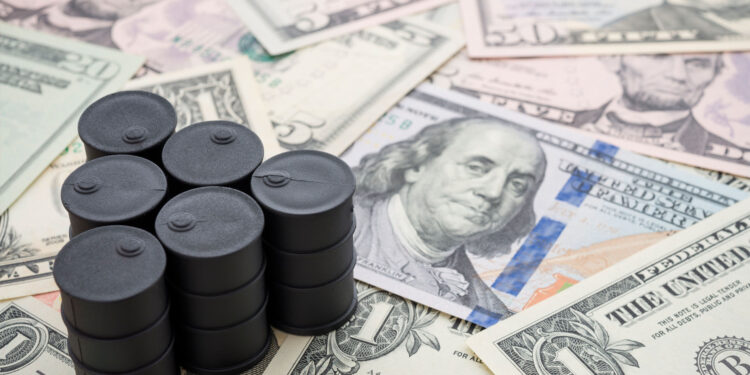Oil prices rose, driven by increasing concerns about the possibility of Israel’s war on the Gaza Strip expanding to include Lebanon, despite a sudden increase in US inventories that reinforced fears of a slowdown in demand in the world’s largest oil consumer.
After an earlier decline, Brent crude futures rose by 40 cents, or 0.5%, to $85.65 per barrel, at the time of writing, and US West Texas Intermediate crude futures increased by 38 cents, or 0.47%, to $81.28 per barrel.
The two benchmarks recorded a slight increase upon settlement yesterday, Wednesday.
US stocks
The US Energy Information Administration announced that the country’s crude oil inventories rose by 3.6 million barrels last week, which surprised analysts quoted by Reuters who believed they would decline by 2.9 million barrels.
Gasoline stocks in the United States also increased by 2.7 million barrels, compared to analysts’ expectations of a decrease of one million barrels.
In the Middle East, the escalation of cross-border tension between Israel and Lebanon, specifically in southern Lebanon, in recent weeks has exacerbated fears of an all-out war between Israel and Hezbollah, which could attract other regional powers, including Iran, which has limited the decline in prices.
gold
In the context of the markets, gold prices stabilized today after falling to the lowest level in two weeks in the previous session, with investors awaiting US inflation data in search of indicators about the path of the Federal Reserve (the US central bank) reducing interest rates.
Gold rose in instant transactions by 0.67% to $2,313.69 per ounce, at the time of writing the report, after it fell yesterday to its lowest levels since the tenth of June.
The dollar is near its highest level in 8 weeks, making gold more expensive for holders of other currencies.
Tim Waterer, chief market analyst at KCM Trade, said, “The rise of the dollar, accompanied by a rise in bond yields, has made the price of gold seem to be swimming against the current.”
This week, the markets are awaiting data on GDP estimates for the first quarter in the United States today, and data on personal consumption expenditure inflation tomorrow, Friday.
Although the precious metal is considered a hedge against inflation, high interest rates increase the opportunity cost of owning assets that do not generate returns.



